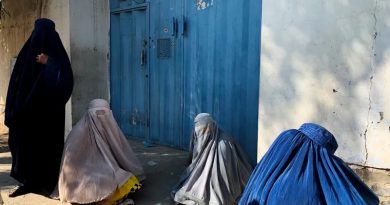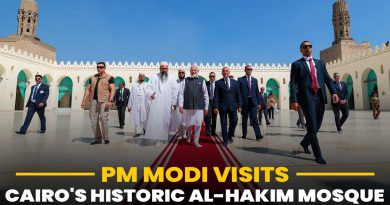OPINION: Charter of Makkah to promote confident Muslims? Dr. Mohammed Al-Issa’s visit to the United Kingdom
by Mohammed Abbasi
The recent meeting between Dr. Al-Issa and several prominent religious leaders in the UK is an important step towards achieving this goal.
The ongoing visit of Shaykh Dr. Mohammed Al-Issa, the Secretary-General of the Muslim World League, to the United Kingdom is a crucial step in creating confidence among the communities of different faiths and backgrounds. Al-Issa’s meetings with various religious leaders, including the Archbishop of Canterbury Rt Reverend Justin Welby, the Archbishop of Westminster Cardinal Vincent Collins, and the Chief Rabbi Sir Ephraim Mirvis, are significant in advancing the ideas of the Charter of Makkah and combating extremism.
Critics of Saudi Arabia’s past engagement with Islamist groups and individuals in the West argue that it still promotes extremist views and values, and that Dr. Issa would still meet some of those who are considered “problematic” by the British Government.
It is true that religious extremism was encouraged in the 1980s by some of the Saudi citizens, but the spearhead was the British and the United States governments who used the religious passions of Muslims to tackle the Soviet Union in Afghanistan.
The Charter of Makkah is an historic document which establishes the “values of coexistence among followers of religions, cultures, races, and sects in Islamic countries”. This Charter is intended to “achieve peace and harmony among various segments of society”.
By promoting the principles of the Charter of Makkah, it asks Muslims to reject inequality, discrimination, and extremism and advance a world based on the values of peace, dialogue, and mutual respect.
But we have to understand that what is more important is that we have an open and transparent dialogue, a discussion on how we should collectively move forward, and this Makkah Charter should have invited people from different faith communities to engage with the Saudi scholar and diplomat – Dr. Al-Issa, and not just the usual suspects amongst the British Muslim groups and individuals, many of whom have their own issues with Saudis – especially the Crown Prince Mohammed Bin Salman.
Dr. Al-Issa’s engagement with a diverse range of communities and organizations should be welcomed, but not feared. Some who have engaged with Dr. Al-Issa have mentioned that, there seems to be a lack of seriousness in tackling religious extremism in the West, and these visits are geared to make his own position as the Secretary General of the Muslim World League more solid.
Saudi Arabia can effectively combat extremism by promoting these principles through wider engagement and open dialogue. The recent meeting between Dr. Al-Issa and several prominent religious leaders in the UK is an important step towards achieving this goal.
It is important to note that peaceful relations between Muslims and non-Muslims existed in many parts of the world, before the 1980s. Iran, the Muslim Brotherhood, and Jamaat-e-Islami had their supporters in the West, and these groups had to tackle the Greater Satan – Communism. This led to the radicalization of many individuals who were trained and programmed in Jihad, and after the war in Afghanistan, many of these individuals returned to their countries including the West and started their own groups, some of which became terrorist organizations.
Anjem Choudhary, Al Muhajiroun and others didn’t just grow from nothing here in the UK.
It is better late than never to reject all forms of extremism and move forward by promoting the values of peace, dialogue, tolerance, equality, and mutual co-existence. We must remember that the Makkah Declaration emphasizes the importance of promoting peace and harmony, rejecting hate and discrimination, and combating extremism. These principles are not limited to Muslims alone but reflect common human values that we must all strive to embody in our daily lives.
The principles of the Charter of Makkah calls for the values of peace and harmony that are crucial to the advancement of human society. By rejecting hate, discrimination, and extremism, we can move forward and create a world based on mutual respect and coexistence. These values are not limited to any one religion or culture but are common human values that we must all embrace.
Dr. Al-Issa’s visit to the United Kingdom should be welcomed and his meetings with various religious leaders are crucial in promoting the values of the Charter of Makkah and combating extremism. But to embody the values of the Charter of Makkah in our daily lives we should be promoting open dialogue and mutual respect more wider and not just speaking with those we agree with or benefit from.
This is how people reject all forms of extremism and move forward towards a better future for all of humanity.
Mohammed Abbasi is the Director of Association of British Muslims.
Disclaimer: Views expressed by writers in this section are their own and do not reflect Milli Chronicle’s point-of-view.



